Approximately 80% of Japan’s population aged 65 and over (seniors) are capable of joining the labor force. Japan’s seniors possess a high level of motivation to work, even by international standards. Naturally, it is the right of the individual to choose whether or not they wish to work, but it would be desirable for our society to possess mechanisms enabling elderly individuals who do desire to work to find an appropriate means of involvement and to be able to continue working. In a “super-aged” society, employment for the elderly will be socially necessary, but at present, the elderly are not being adequately presented with opportunities for involvement.
One reason for this is discrimination and prejudice towards the elderly, i.e. “ageism.” The tendency to underestimate the abilities of the elderly is strongly rooted in society and among companies, and unless we first expunge this tendency, it will be difficult to accept elderly citizens into employment. At the same time, it would be a mistake to overestimate the elderly, and believe them to be capable of any task. Aging is a fact that cannot be denied. Performing tasks in dark areas represents a greater risk for the elderly, and their efficiency does decline. The quality of their work might not decline significantly, but their output will be lower than that of younger people.
What is essential is a correct understanding of the nature of the aging of the body and the mind. We will need to consider what type of support to offer in order to enable the elderly to work safely without over-extending themselves. Changes in awareness throughout our entire society will be necessary to promoting work among the elderly based on an accurate view of the situation, without going too far or not far enough.
To make this possible, strongly-rooted cooperation between private enterprise, government, academia and civil society will be necessary. In such cooperation, private enterprise would provide employment, the government would play a supporting role, and the academic side would conduct basic research and collect and publish information. Civil society would be represented by the seniors themselves. By inviting the participation of the concerned parties, the companies and the seniors, when conducting research on the ways in which seniors can work within companies, academia would be able to make new discoveries. It would be desirable for Japanese society to engage in a process in which we go beyond established boundaries in order to invigorate mutual interaction.
Professor Osada is involved in research on the psychological changes associated with aging and the concept of lifelong development, taking the perspective
that aging is to be viewed as positively as possible. He is particularly interested in the psychology of dementia and its social characteristics.
The people who are most keenly aware of the decline in abilities in the elderly, e.g., the diminished vision, the difficulty in remembering, are the elderly themselves. Elderly people therefore devise a variety of schemes to help them avoid trouble in their daily activities and to maintain their abilities at an acceptable level. I am sure that in agriculture and other areas in which we can easily point to examples of elderly people continuing to perform well in work situations, each elderly workers has tailored their approach to work to suit their abilities.
Expecting elderly workers to work by the book is not the best approach. If an attitude that seeks uniform perfectionism is discarded in place of a tolerant attitude that accepts the individual circumstances of each worker, elderly workers will organize their working situation themselves to enable them to use the abilities and the faculties that they possess in the best fashion. As this indicates, the working environment is the deciding factor.
The development of environments in which the elderly are able to cooperate with younger people would also be effective. Seniors have difficulty in using new devices, but if they were able to do so while working together with young people, they would soon find their own way of using these devices. This would also have benefits for the young people. Working in collaboration with elderly people would boost their self-esteem, and increase their assertiveness. The real issue will be how to incorporate new valuations into workplace and company systems that enable the best use to be made of all the possible permutations.
When a workplace becomes one in which elderly people find it easy to work, then in all likelihood it will have become a workplace in which it is easy for everyone to work, regardless of age or gender. This is exactly what we do in the Center for Usability and Aging Research*: By pursuing designs that make products and services easier for the elderly to use, we seek to realize greater user-friendliness for everyone.
*A research project led by Professor Harada, in which she conducts research concerning the user-friendliness of products and services with the involvement of elderly residents of the local area.
Professor Harada seeks to increase user-friendliness for all users, especially the elderly, based on a universal design perspective. In her ongoing research project, she works together with local elderly volunteers in order to further her research.
“Wisdom” is the great advantage possessed by seniors. Wisdom is the ability, at crucial points, to judge one’s own circumstances and the surrounding circumstances, and to make decisions on that basis. Wisdom is a quality that is considered to develop with age. People who possess wisdom are normally modest and self-effacing, but are instantly ready with excellent advice when it is necessary. It is wisdom that enables elderly workers to act as skillful mediators when interpersonal issues arise in the workplace, and to offer the most appropriate advice to younger workers. To exaggerate somewhat, if an elderly worker was able to apply their wisdom once in a year in a situation in which that wisdom was genuinely needed, it would not matter if they simply slept for the rest of the year.
The vast majority of senior citizens are healthy and would be able to work normally until the age of 75. However, the reality is that jobs are unavailable for these healthy elderly people, in particular in urban areas. This is presumably because society pursues efficiency exclusively, and has lost a sense of flexibility. We must make the transition towards a society which makes use of the wisdom of the elderly.
Research has been conducted on the relationship between work experience and cognitive function in the elderly. According to this research, many elderly people who maintain cognitive functions performed complex tasks in their jobs when they were young. Subjects who were around 70 at the time of the research had done jobs requiring calculation and data processing, while those who were aged around 90 at the time had done jobs involving coordination of other people. The nature of the abilities demanded by jobs changes with the times. Considering that in the future, computers will replace humans for work like data processing, perhaps we will make the transition back to a society in which the wisdom of the elderly can be used in coordinating human relationships in the workplace. At the same time, we must also give consideration to what type of wisdom to develop in the younger generations.
Associate Professor Gondo conducts research on factors affecting longevity and the sense of wellbeing among the elderly. For more than 15 years he has been energetic in conducting interviews with elderly people, now having interviewed over 1,500 subjects in total.
Against the background of Japan’s low birthrate and aging population, senior citizens can play the role of enabling the nation to maintain a fixed level of labor power. Perhaps 20% of Japan’s seniors, who might be called “super seniors,” remain independent and vigorous for their entire lives. Healthy and active seniors also continue to be involved in work.
Even if seniors are finding it difficult to continue working, they should not immediately shut themselves away in their homes, but rather continue to participate in social activities, gradually reducing their workload while making the transition from work into involvement in volunteer activities or hobbies. This is the “successful aging” advocated by my team. Seniors have their own unique role to play in regional activities and activities that contribute to society, and such activities are of benefit to the seniors themselves, the connection with the broader community offering them a sense of purpose and a boost to their health. In addition to being a “super-aging society,” Japan faces a low birthrate and a declining population. We can certainly assume that whether remunerated or not, volunteer activities will form part of the lives of Japan’s senior citizens in the future.
What will be important in this is that the elderly citizens involved can enjoy themselves while participating in these volunteer activities. Activities that they find difficult or not to their liking will only have the effect of increasing stress. The regularity of the activities is also important. A survey conducted by the Institute of Gerontology indicates that individuals who participate in volunteer activities at least once a month experience only one-quarter the age-related decline in function of those who participate occasionally or not at all. And the effect is greater the more enjoyable the activity is.
If volunteer activities burgeon among the elderly, their approach will become an issue. Because seniors are not physically strong, it would be best to enable them to participate in groups, or to create systems that enable them to alternate their involvement with others, for example by forming teams. In addition, because some participants in volunteer activities would tend to deviate from standard practice based on their own individual inclinations, it would also be essential to establish mechanisms and formulate guidelines to ensure that guidelines were followed.
Employment opportunities among Japan’s seniors are limited to personal connections and jobs that become available in their own neighborhoods. Job-seeking websites are geared towards the young; there are few positions calling for older workers, and no attempt is made to match seniors with companies offering work. Rendering the skills that seniors possess “visible” will be essential in connecting elderly workers with potential employers. An initiative in the US can provide us with a guide in this.
The United States Department of Labor maintains an occupational database called “O*NET,” which has dramatically improved the matching of individual workers and companies. Municipal administrations and employment agencies use this database to standardize job descriptions. This service makes available a wide range of information on the Web, including the skills required for specific jobs, the needs of companies, and the availability of occupational training. The database also allows users to seek out different occupations requiring similar skills. This works as a useful reference for people who are seeking new jobs for which their existing expertise will fit them. For example, there are similarities between auditing work and jobs involving the scanning of genetic information. Both require the ability to identify discrepancies in sets of figures, and to draw inferences from these discrepancies. There is also a close relationship between the abilities required by travel agents and social workers, in that each must possess the ability to listen closely to what clients are seeking. The creation of a database like O*NET in Japan could significantly expand the job-matching potential for all ages, and senior citizens would especially benefit because their skills have been less visible than those of younger people.
The results of a NIRA survey have indicated the surprising fact that more than 40% of workers in clerical and sales positions in Japan are not sufficiently aware of their own skills, and believe that their jobs do not require any specialized knowledge *. This contrasts with the results of a survey conducted by O*NET in the US, which indicated that most workers in these categories believe that they possess specific expertise. This lack of self-assessment among younger generations in Japan will have a negative effect in their senior years. They will need to learn how to market themselves in order to ensure their future employability. *The results of this questionnaire survey will be published in the near future.
Associate Professor Ito specializes in international economics and health economics. Her research focuses on the eff ect of location choices on productivity, with a particular focus on multinational corporations and medical services.
Japan’s birthrate is low, and its population is aging and declining. As this scenario progresses, we need to create a society in which all generations are able to play an even more active role than has previously been the case. It will be essential in this that we do not simply regard the members of the senior generations in particular as individuals needing to be supported, but rather make it possible for them to be more active in ways that suit their actual situations. In order to do so, we will need to attain an accurate grasp of the actual situation of the elderly, and consider appropriate working styles and modes of activity on the basis of this understanding.
Based on this perspective, in this issue of My Vision, we discuss the abilities possessed by seniors and the potential for using those abilities with experts involved in a variety of specialized fields closely related to issues of Japan’s senior population.
While we often think that we intuitively understand the situation of seniors, in actual fact very little discussion of the issues is conducted on a scientific basis. Professor Hisao Osada points out in this issue that approximately 80% of seniors aged 65 and above could potentially become part of the labor force. Associate Professor Yasuyuki Gondo believes that the great majority of seniors are in good health, and able to work normally until the age of 75. However, seniors are not being sufficiently provided with the opportunity to work.
While it would be an exaggeration to believe that seniors are able to take on any type of work, Professor Etsuko Harada points to the necessity of organizing working environments that make it easier for the elderly to work, stressing that this ultimately makes workplaces easier for everyone to work in.
And if we do not merely consider work in the narrow sense, as Dr. Yoshinori Fujiwara suggests, seniors have their own roles to play in regional activities and activities for the benefit of society, and it will be necessary to work to create environments to make their participation possible.
Ultimately, it will be essential to implement initiatives such as the establishment of occupational databases, as suggested by Associate Professor Yukiko Ito, and to make further efforts to analyze the issues raised above scientifically and to formulate meaningful policies on this basis.
----------------------------------------------------------------------
Interviewer: Yuya Nishiyama, NIRA Senior Researcher
Editor: Kazuyoshi Harada
Period of interviews: December 2015 - January 2016
This is a translation of a paper originally published in Japanese. NIRA bears full responsibility for the translation presented here. Translated by Michael Faul.
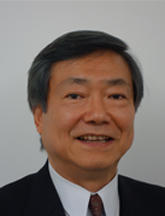 Hisao Osada Professor, Graduate School of Gerontology, J. F. Oberlin UniversityApproximately 80% of Japan’s population aged 65 and over ...
Hisao Osada Professor, Graduate School of Gerontology, J. F. Oberlin UniversityApproximately 80% of Japan’s population aged 65 and over ...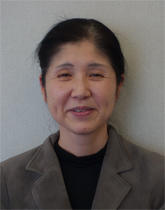 Etsuko T. Harada Professor, Division of Psychology, University of TsukubaThe people who are most keenly aware of the decline in abilities in...
Etsuko T. Harada Professor, Division of Psychology, University of TsukubaThe people who are most keenly aware of the decline in abilities in...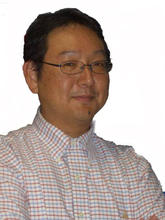 Yasuyuki Gondo Associate Professor, Graduate School of Human Sciences, Osaka University"Wisdom” is the great advantage possessed by seniors...
Yasuyuki Gondo Associate Professor, Graduate School of Human Sciences, Osaka University"Wisdom” is the great advantage possessed by seniors...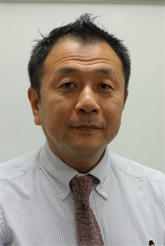 Yoshinori Fujiwara Team Leader, Research Team for Social Participation and Community Health, Tokyo Metropolitan Institute of GerontologyAgainst the background of Japan’s low birthrate and aging population...
Yoshinori Fujiwara Team Leader, Research Team for Social Participation and Community Health, Tokyo Metropolitan Institute of GerontologyAgainst the background of Japan’s low birthrate and aging population...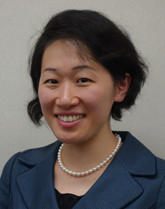 Yukiko Ito Associate Professor, Department of Economics, Faculty of Humanities and Social Sciences, Tokyo Gakugei UniversityEmployment opportunities among Japan’s seniors are limited to...
Yukiko Ito Associate Professor, Department of Economics, Faculty of Humanities and Social Sciences, Tokyo Gakugei UniversityEmployment opportunities among Japan’s seniors are limited to...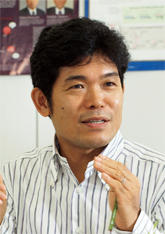



Expert Opinions
01
It will be essential to change social awareness regarding employment for seniors
It will be essential to change social awareness regarding employment for seniors
Hisao Osada Professor, Graduate School of Gerontology, J. F. Oberlin University
Approximately 80% of Japan’s population aged 65 and over (seniors) are capable of joining the labor force. Japan’s seniors possess a high level of motivation to work, even by international standards. Naturally, it is the right of the individual to choose whether or not they wish to work, but it would be desirable for our society to possess mechanisms enabling elderly individuals who do desire to work to find an appropriate means of involvement and to be able to continue working. In a “super-aged” society, employment for the elderly will be socially necessary, but at present, the elderly are not being adequately presented with opportunities for involvement.
One reason for this is discrimination and prejudice towards the elderly, i.e. “ageism.” The tendency to underestimate the abilities of the elderly is strongly rooted in society and among companies, and unless we first expunge this tendency, it will be difficult to accept elderly citizens into employment. At the same time, it would be a mistake to overestimate the elderly, and believe them to be capable of any task. Aging is a fact that cannot be denied. Performing tasks in dark areas represents a greater risk for the elderly, and their efficiency does decline. The quality of their work might not decline significantly, but their output will be lower than that of younger people.
What is essential is a correct understanding of the nature of the aging of the body and the mind. We will need to consider what type of support to offer in order to enable the elderly to work safely without over-extending themselves. Changes in awareness throughout our entire society will be necessary to promoting work among the elderly based on an accurate view of the situation, without going too far or not far enough.
To make this possible, strongly-rooted cooperation between private enterprise, government, academia and civil society will be necessary. In such cooperation, private enterprise would provide employment, the government would play a supporting role, and the academic side would conduct basic research and collect and publish information. Civil society would be represented by the seniors themselves. By inviting the participation of the concerned parties, the companies and the seniors, when conducting research on the ways in which seniors can work within companies, academia would be able to make new discoveries. It would be desirable for Japanese society to engage in a process in which we go beyond established boundaries in order to invigorate mutual interaction.
Professor Osada is involved in research on the psychological changes associated with aging and the concept of lifelong development, taking the perspective
that aging is to be viewed as positively as possible. He is particularly interested in the psychology of dementia and its social characteristics.
02
If the working environment is right, seniors will use their abilities
If the working environment is right, seniors will use their abilities
Etsuko T. Harada Professor, Division of Psychology, University of Tsukuba
The people who are most keenly aware of the decline in abilities in the elderly, e.g., the diminished vision, the difficulty in remembering, are the elderly themselves. Elderly people therefore devise a variety of schemes to help them avoid trouble in their daily activities and to maintain their abilities at an acceptable level. I am sure that in agriculture and other areas in which we can easily point to examples of elderly people continuing to perform well in work situations, each elderly workers has tailored their approach to work to suit their abilities.
Expecting elderly workers to work by the book is not the best approach. If an attitude that seeks uniform perfectionism is discarded in place of a tolerant attitude that accepts the individual circumstances of each worker, elderly workers will organize their working situation themselves to enable them to use the abilities and the faculties that they possess in the best fashion. As this indicates, the working environment is the deciding factor.
The development of environments in which the elderly are able to cooperate with younger people would also be effective. Seniors have difficulty in using new devices, but if they were able to do so while working together with young people, they would soon find their own way of using these devices. This would also have benefits for the young people. Working in collaboration with elderly people would boost their self-esteem, and increase their assertiveness. The real issue will be how to incorporate new valuations into workplace and company systems that enable the best use to be made of all the possible permutations.
When a workplace becomes one in which elderly people find it easy to work, then in all likelihood it will have become a workplace in which it is easy for everyone to work, regardless of age or gender. This is exactly what we do in the Center for Usability and Aging Research*: By pursuing designs that make products and services easier for the elderly to use, we seek to realize greater user-friendliness for everyone.
*A research project led by Professor Harada, in which she conducts research concerning the user-friendliness of products and services with the involvement of elderly residents of the local area.
Professor Harada seeks to increase user-friendliness for all users, especially the elderly, based on a universal design perspective. In her ongoing research project, she works together with local elderly volunteers in order to further her research.
03
We must make use of the wisdom of our senior citizens
We must make use of the wisdom of our senior citizens
Yasuyuki Gondo Associate Professor, Graduate School of Human Sciences, Osaka University
“Wisdom” is the great advantage possessed by seniors. Wisdom is the ability, at crucial points, to judge one’s own circumstances and the surrounding circumstances, and to make decisions on that basis. Wisdom is a quality that is considered to develop with age. People who possess wisdom are normally modest and self-effacing, but are instantly ready with excellent advice when it is necessary. It is wisdom that enables elderly workers to act as skillful mediators when interpersonal issues arise in the workplace, and to offer the most appropriate advice to younger workers. To exaggerate somewhat, if an elderly worker was able to apply their wisdom once in a year in a situation in which that wisdom was genuinely needed, it would not matter if they simply slept for the rest of the year.
The vast majority of senior citizens are healthy and would be able to work normally until the age of 75. However, the reality is that jobs are unavailable for these healthy elderly people, in particular in urban areas. This is presumably because society pursues efficiency exclusively, and has lost a sense of flexibility. We must make the transition towards a society which makes use of the wisdom of the elderly.
Research has been conducted on the relationship between work experience and cognitive function in the elderly. According to this research, many elderly people who maintain cognitive functions performed complex tasks in their jobs when they were young. Subjects who were around 70 at the time of the research had done jobs requiring calculation and data processing, while those who were aged around 90 at the time had done jobs involving coordination of other people. The nature of the abilities demanded by jobs changes with the times. Considering that in the future, computers will replace humans for work like data processing, perhaps we will make the transition back to a society in which the wisdom of the elderly can be used in coordinating human relationships in the workplace. At the same time, we must also give consideration to what type of wisdom to develop in the younger generations.
Associate Professor Gondo conducts research on factors affecting longevity and the sense of wellbeing among the elderly. For more than 15 years he has been energetic in conducting interviews with elderly people, now having interviewed over 1,500 subjects in total.
04
Encourage volunteer activities that allow seniors to enjoy themselves
Encourage volunteer activities that allow seniors to enjoy themselves
Yoshinori Fujiwara Team Leader, Research Team for Social Participation and Community Health, Tokyo Metropolitan Institute of Gerontology
Against the background of Japan’s low birthrate and aging population, senior citizens can play the role of enabling the nation to maintain a fixed level of labor power. Perhaps 20% of Japan’s seniors, who might be called “super seniors,” remain independent and vigorous for their entire lives. Healthy and active seniors also continue to be involved in work.
Even if seniors are finding it difficult to continue working, they should not immediately shut themselves away in their homes, but rather continue to participate in social activities, gradually reducing their workload while making the transition from work into involvement in volunteer activities or hobbies. This is the “successful aging” advocated by my team. Seniors have their own unique role to play in regional activities and activities that contribute to society, and such activities are of benefit to the seniors themselves, the connection with the broader community offering them a sense of purpose and a boost to their health. In addition to being a “super-aging society,” Japan faces a low birthrate and a declining population. We can certainly assume that whether remunerated or not, volunteer activities will form part of the lives of Japan’s senior citizens in the future.
What will be important in this is that the elderly citizens involved can enjoy themselves while participating in these volunteer activities. Activities that they find difficult or not to their liking will only have the effect of increasing stress. The regularity of the activities is also important. A survey conducted by the Institute of Gerontology indicates that individuals who participate in volunteer activities at least once a month experience only one-quarter the age-related decline in function of those who participate occasionally or not at all. And the effect is greater the more enjoyable the activity is.
If volunteer activities burgeon among the elderly, their approach will become an issue. Because seniors are not physically strong, it would be best to enable them to participate in groups, or to create systems that enable them to alternate their involvement with others, for example by forming teams. In addition, because some participants in volunteer activities would tend to deviate from standard practice based on their own individual inclinations, it would also be essential to establish mechanisms and formulate guidelines to ensure that guidelines were followed.
Dr. Fujiwara is involved in research on the development of systems to support the elderly in contributing to society and on the promotion and effects of inter-generational exchange. He stresses the importance of local prevention and local support in ensuring healthy and active longevity.
05
Create an occupational database similar to “O*NET” in the US
Create an occupational database similar to “O*NET” in the US
Yukiko Ito Associate Professor, Department of Economics, Faculty of Humanities and Social Sciences, Tokyo Gakugei University
Employment opportunities among Japan’s seniors are limited to personal connections and jobs that become available in their own neighborhoods. Job-seeking websites are geared towards the young; there are few positions calling for older workers, and no attempt is made to match seniors with companies offering work. Rendering the skills that seniors possess “visible” will be essential in connecting elderly workers with potential employers. An initiative in the US can provide us with a guide in this.
The United States Department of Labor maintains an occupational database called “O*NET,” which has dramatically improved the matching of individual workers and companies. Municipal administrations and employment agencies use this database to standardize job descriptions. This service makes available a wide range of information on the Web, including the skills required for specific jobs, the needs of companies, and the availability of occupational training. The database also allows users to seek out different occupations requiring similar skills. This works as a useful reference for people who are seeking new jobs for which their existing expertise will fit them. For example, there are similarities between auditing work and jobs involving the scanning of genetic information. Both require the ability to identify discrepancies in sets of figures, and to draw inferences from these discrepancies. There is also a close relationship between the abilities required by travel agents and social workers, in that each must possess the ability to listen closely to what clients are seeking. The creation of a database like O*NET in Japan could significantly expand the job-matching potential for all ages, and senior citizens would especially benefit because their skills have been less visible than those of younger people.
The results of a NIRA survey have indicated the surprising fact that more than 40% of workers in clerical and sales positions in Japan are not sufficiently aware of their own skills, and believe that their jobs do not require any specialized knowledge *. This contrasts with the results of a survey conducted by O*NET in the US, which indicated that most workers in these categories believe that they possess specific expertise. This lack of self-assessment among younger generations in Japan will have a negative effect in their senior years. They will need to learn how to market themselves in order to ensure their future employability. *The results of this questionnaire survey will be published in the near future.
Associate Professor Ito specializes in international economics and health economics. Her research focuses on the eff ect of location choices on productivity, with a particular focus on multinational corporations and medical services.
About this issue
Using the Abilities of Japanʼs Senior Generations
Using the Abilities of Japanʼs Senior Generations
Noriyuki Yanagawa NIRA Executive Vice President / Professor, Graduate School of Economics, The University of Tokyo
Japan’s birthrate is low, and its population is aging and declining. As this scenario progresses, we need to create a society in which all generations are able to play an even more active role than has previously been the case. It will be essential in this that we do not simply regard the members of the senior generations in particular as individuals needing to be supported, but rather make it possible for them to be more active in ways that suit their actual situations. In order to do so, we will need to attain an accurate grasp of the actual situation of the elderly, and consider appropriate working styles and modes of activity on the basis of this understanding.
Based on this perspective, in this issue of My Vision, we discuss the abilities possessed by seniors and the potential for using those abilities with experts involved in a variety of specialized fields closely related to issues of Japan’s senior population.
While we often think that we intuitively understand the situation of seniors, in actual fact very little discussion of the issues is conducted on a scientific basis. Professor Hisao Osada points out in this issue that approximately 80% of seniors aged 65 and above could potentially become part of the labor force. Associate Professor Yasuyuki Gondo believes that the great majority of seniors are in good health, and able to work normally until the age of 75. However, seniors are not being sufficiently provided with the opportunity to work.
While it would be an exaggeration to believe that seniors are able to take on any type of work, Professor Etsuko Harada points to the necessity of organizing working environments that make it easier for the elderly to work, stressing that this ultimately makes workplaces easier for everyone to work in.
And if we do not merely consider work in the narrow sense, as Dr. Yoshinori Fujiwara suggests, seniors have their own roles to play in regional activities and activities for the benefit of society, and it will be necessary to work to create environments to make their participation possible.
Ultimately, it will be essential to implement initiatives such as the establishment of occupational databases, as suggested by Associate Professor Yukiko Ito, and to make further efforts to analyze the issues raised above scientifically and to formulate meaningful policies on this basis.
----------------------------------------------------------------------
Interviewer: Yuya Nishiyama, NIRA Senior Researcher
Editor: Kazuyoshi Harada
Period of interviews: December 2015 - January 2016
This is a translation of a paper originally published in Japanese. NIRA bears full responsibility for the translation presented here. Translated by Michael Faul.